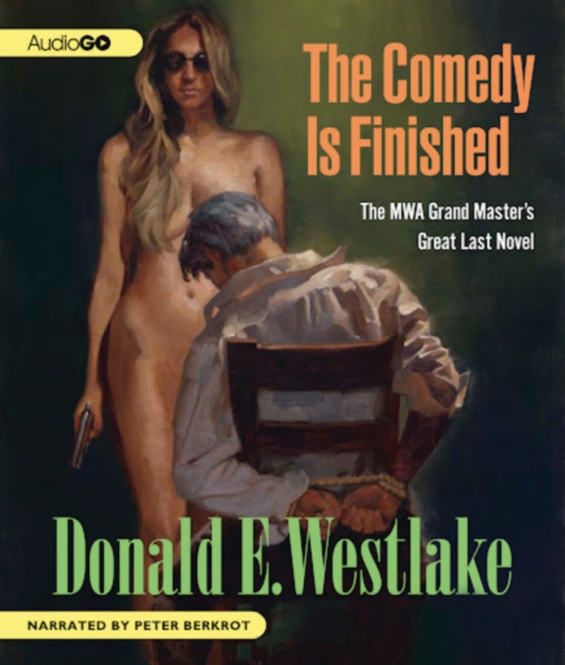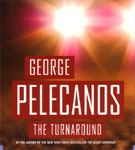The SFFaudio Podcast #824 – Killers Are My Meat by Stephen Marlowe – read by Ben Tucker (for LibriVox). This is a complete and unabridged reading of the story (5 hours 22 minutes) followed by a discussion of it. Participants in the discussion include Jesse and Alex (Pulpcovers)
Talked about on today’s show:
Milton Lesser, Killers Are My Meat, joke, Murder Is My Dish, Trouble Is My Name, a new Gold Medal, LibriVox, digging into it, a science fiction author, mostly set in India, the first Chester Drum story, the third novel, a big future, 20 books?, a lot, he’d been to India, world traveler, Benares, smells and vibes, too much detail, I fooled em all!, immigrants, saris, religious practices, 1957, the narrator, some Conan stuff, pronunciations wrong, he gets drugged with a rufinol?, that can’t be right, acting in a similar way, drugs, a 1950s thing, smoking, alcohol, by the river, the girl reporter, throws it in the river, sex adjacent stuff, our hero, a traditional gold medal paperback PI, so strange, interesting, Ross Macdonald, Dashiell Hammett, Mickey Spillane, John D. MacDonald, Chesapeake City, Maryland, on a clipper to India, getting sweaty, the culture, the plot hinges on these culture things, not a crappy book at all, quite well developed, the low stakes, early cold war conference, a success, didn’t accomplish very much, the global south, low level state department guy, framed for rape, very believable, the thing that it is, a private detective story, G man pulps, don’t trust G men, read too much, real propaganda, FBI, J. Edgar Hoover, dress codes, the publishing industry, taking down the counterfeiters, T-Men, actual propaganda, this legacy, the people who defected, for cynical reasons, Dashiell Hammett, Red Harvest, sympatico, science fiction, crime fiction, scratches a very similar itch, understanding reality, more like a scientist, James M. Cain, motivations, detached, knight in tarnished armour, pay the secretary, a series of formulae, a new alloy, engineering, claims out there in the world, appearances out in the world, the underlying truth behind the appearances, Sherlock Holmes, crime fiction and mystery fiction, a series character, Captain Future, villain of the week, Flash Gordon cartoon series from 1979, the character drawings, funny dialogue, a lot of filler, recycling scene, stretched it out, Hannah Barbara animation look, more rotoscoped, Heavy Metal (1981), the shapes of ladies as they turn, Flash Gordon (1980), Flesh Gordon (1974), Futurama, Star Trek, that is actually a Frederik Pohl story, Bender art, it lives on its references, the Harlem Globetrotters, without the foundation, the heads of various, Richard Nixon’s head, Al Gore, Lucy Lui, the latest batch, a little bit too meta, the Snu Snu episode, David H. Keller, Zoidberg, the saddest, nobody loves him, why not Zoidberg, an incel, mates once and then dies, Amy Wong, guh, skibidi toilet, nonsense words, Rambo!, a connection between crime fiction and mystery fiction and science fiction, series science fiction, Ellery Queen’s Mystery Magazine and F&SF, totally compatible, Milton Lesser is Stephen Marlowe, he wrote, operating in a different mode, all the things that happen in this story, hit on the head, drugged, hit by a car, drunk, hangovers, private detective story tropes, this girl loves him, all very tropey legit built in stuff, deeply connected to the facts that Lesser learned, this Malabar woman thing, the central mystery, find himself, get lost and never come back, little details, Somerset Maugham, Ben Tucker (our narrator), The Razor’s Edge, a movie version with Bill Murray, WWI veteran with ptsd, transcendent meaning, rejection of conventional life, reversals of fortune, the sharp edge of a razor, our friend from before the war, he goes to the east, he acts differently, why do people want to go to India, the smoke, the smells, the humidity, a weak fan, one room has AC, a bath of sweat, not a resort area, there’s answers there, polyandry, outlawed, a traditional weird Indian set of beliefs, the caste system, bloodlines, weird food, vegetarian, the big reveal, when he’s at the river, raking the body, he’s looking for the metal plate in his head, in the movie version, aha, lays his traps well, following along, you’re the best detective in Washington, straddled the line, cold war espionage fiction, Hugh North, squarely in the middle early twentieth century exoticism, not the way Robert E. Howard would write it, geopolitical concerns, what it is to be a man, a champion for women, other chracters’ motivations, the thing that is being explored, to get his $2000 and go home, his friend gets kidnapped, other male reporter, honourable intentions, quite cozy, that’s how you do it, The Thin Man, bachelor to married, Lawrence Block and Donald Westlake, driving a Toyota Avalon, somebody else’s driver’s license, time marches on, easy breezy read, hot places, a flavour, or an idea, Belize, very Caribbean accent, addicted to paperbacks, teenage years, teenage boy, walk around this library, amazingly cool book, one for the one for me, a really good hobby, I was promised this was a book, a different mode of being, what is the purpose of my existence here on Earth?, there’s actually value here, nothing on the cover, Japanese writing on a sign, guy in a trenchcoat, her hands awoke me, her breath was not cold, felt her body, that’s uncomfortable, overheated, no touching, generic cover, the artist rarely read these things, tan skin and red lips, blonde?, the defacto representative, in a sense we were tricked, you tricked me into reading this, suddenly, diplomatic immunity, first secretary, feels very Washington, all that doesn’t matter, we’re going to India, tiny details, why is this woman dressed the way she is, they’re wealthy here, suspicious, suspicious characters, the opposite of formulaic, plot, typical motivations, having sex with everybody in town, undercut, its a red herring, his wife doesn’t really care, eastern mysticism, because she’s eastern, not have his wife cuckhold him, he’s like the mahatma, operating on another plane, gin everywhere, constant taking of drugs, keep smoking it brings up the blood pressure, rauwolfia, hypertension, they’re both drugged, I lined my stomach with butter, ghee, eat a lot, a full stomach, puked it up, Paul didn’t believe Jesse, wood alcohol, the antidote to wood alcohol poisoning is regular alcohol, start processing, both have the same effect, the second Indiana Jones movie, antidote, drugs and counterdrugs, the most even and obvious, a “rubby”, so that people don’t drink it, taxes, moonshining is constitutional, in British Columbia, government liquor store, grocery stores carrying wine, a loophole, you can make your own, a cheaper version of what you want, a regular little bit of expensive alcohol, a rough way to live your life, a good hobo novel, tramps, bum, Reacher, goes from town to town, functionally homeless, rides the rail to save money, a fascinating set of cultural little things, as normies who live in homes, hobo signs, a more dubious thing, cows, this book smelled bad, all the burning bodies, limbs, quartering, tourism, pilgrims, drink the water, disgusting, river full of ashes, river full of corpses, how did you like the book, fairly complex story, very enjoyable, that private eye dialogue itch, nothing is just hot, hotter than the thighs of a matron, how was your trip, 20 airports, Basra, Calcutta, a lot of flights, three day flight, a tangent, how much men think about the Roman Empire, thinking of other women, thinking about the Concorde, supersonic jet liner, things we used to have, cars with fins on them, economics, whenever someone asked, the answer is always some combination of labour costs, or invisible regulations, we banned asbestos, fuel efficiency requirements, flush fit handles, Tesla is covered in cameras, at least two mirrors, how big do they have to be?, a quirk, convertibles, an iconic thing, a solution, no new cars have, 1976 or 1977 up to 1995, a Camaro, a t-top, or the targa on a Porche, in a rollover you’ll be okay, that idea ended, the Miata, there is no hardtop Miata, a huge success, why cars last a long time, two door cars, smart car, microcars, the rebooted Volkswagen beetle, the Cooper Mini, the lowest thing around, taxes are different on trucks, you have to make a truck, pop up headlights, lights a certain height from the ground, not have a sloping front, Lotus Esprit, damage people that you hit, even on McClarens, strange rules, the class of people, crazy expensive, $10,000 for a flight that’s 5 times shorter?, a two hour flight, some sort of economic reason, forbid them from flying, no supersonic over land, coastal city to coastal city, its not that we don’t know how to make it anymore, where are my airships?, let’s go camping, that’s a pretty valley, see the bears, go through the rockies, storms, really good at predicting the weather, a big sail you can’t unfurl, this is very important, the lightest gas, a new source of helium, the strategic helium reserve, industrial amounts of helium, other gasses, the Americans won’t let you have any, make it a vacuum, vacuum lighter than air vehicles, hydrogen leaks out of everything, a ball of nothingness that is sealed, your zepplin gets shot, lighter than air aircraft, air will leak in, air getting out vs. air getting in, a bubble of vacuum in a sea of air, sealable globe of nothing, we can’t have nice things, Popular Mechanics, Popular Science, magazines in general, National Geographic from 2022, entirely online?, no point in having it in paper, a website you can’t adblock, articles that were more dubious, an opinion piece about your diet, man made meats, fake meats, hypertension, China, the Germans, the cargo airship, heavy lift airships, there’s money there, once airplanes got started, hobby weekend, golf, sailing, the Daddy Warbucks, The Shadow, a pre-helicopter helicopter [autogiro], Nazi helicopters for WWII, counter rotating blades, clipper airplane, get all sweaty, can’t get the alcohol you want, flew back to China, Singapore, Bali, in the course of 4 days, reasonably priced, a college student could save up and do it, Greenland, any place where there’s people, tours of Antarctica, going from this, a name to look out for, short stories, follow the patterns, copyright renewals, that being the case, every six months or so, people who didn’t renew their copyright are being read, often never republished, Ray Bradbury, Isaac Asimov, locked up somewhere, always been the case, Poe and Melville, we have something good here, you had to buy it in physical, a weird and bad distortion, Dr. Jekyll And Mr Hyde is not a kid’s book, Treasure Island is a kid’s book, I’m your step-dad, leatherbound, new versions, Grimm’s Fairy Tales, the good stuff really worth reading, looks great on a shelf, locked up in copyright, Adrian Praetzellis, young Jim Hawkins, Ben Gunn, arrgh! Jim Lad, R.L. Stevenson, Black Sails, so close to being good, water is expensive, next available slot, mid-august, Gentlemen Prefer Blondes [by Anita Loos], a million versions, N.C. Wyeth, a half dozen, Kidnapped, The Black Arrow, David Balfour, poorly and well represented, Poe, a whole lot of Poe, Willam Wilson, no black cat in the name, The Island Of The Fay, The Angel Of The Odd, being an alcoholic, niche interest, career cut short, Kidnapped, Fables, The Sinking Ship, the ship is going down, going out about half shaved, going down since she was launched, time is only relative, in Davy Jones’ Locker in 10 minutes, the situation of man, spoken like a good officer, broken into the spirit room, to the philosophic eye, too far gone, man’s handsome fashion, omit to take a pill, smoking in a powder magazine, a glorious detonation, you’re dying sir, I’ve just adopted a son, license to write a book with you’re new adopted son, sail into the South Pacific, weird natives, Markheim, he killed the curio dealer but met a presence in the shop, killed a guy on Christmas Eve?, the devil appears, you’ve done my work for me, you know who I am, its Christmas Eve you know, that’s wrong!, a little psychological portrait, the range of this guy, a humorist, poetry, a classic at least, on his grave, interesting, he threw it in the fire, rewrote it, very interesting fellow, the eyes of a child, an honest doomed man, his problem is not resentment, or class resentment like Lovecraft, sickly but has a vast love of life, as a kid, the prose, a million movie adaptations, gonna be great, The Cave Girl, a fluffy silly book, The Green Queen by Margaret St. Clair, because of the cover, isn’t that nice, mistress of miracles or puppet of super-science?, semi-contemporary, Robert Sheckley, all born in 1928, 2008, The Last Starship, gets progressively worse, awesome, hard SF with its rules, the mayor never gets a name, Leinster can be awesome, absolute control, get girls, set slaves, what happens, Virgil Finlay, 131 pages, a podcast of short stories, idea packed, women and men are different, they’re not exactly the same as each other, womens’ brains, shorter, weaker, have to suckle children, more domestic, gardening, she’s an old aunt, Heinlein style spaceman nephew, a feed me Seymour style monster, two spacemen go to a planet, everyone there is immortal, religious temple, its taboo, religious mystery, how they treat the death, we’ll give you gifts, share this tech with my people, get off of this planet please, full of books, find a couple of books and read them, the life story of a dead person, read their life stories, a good twist, a third gender, a weird lifestyle, genuine science fiction, couple goes flying in their spaceship the girl dies, a creature that’s a mimic, a Twilight Zone episode, underrated, a real shame, thank you very much.
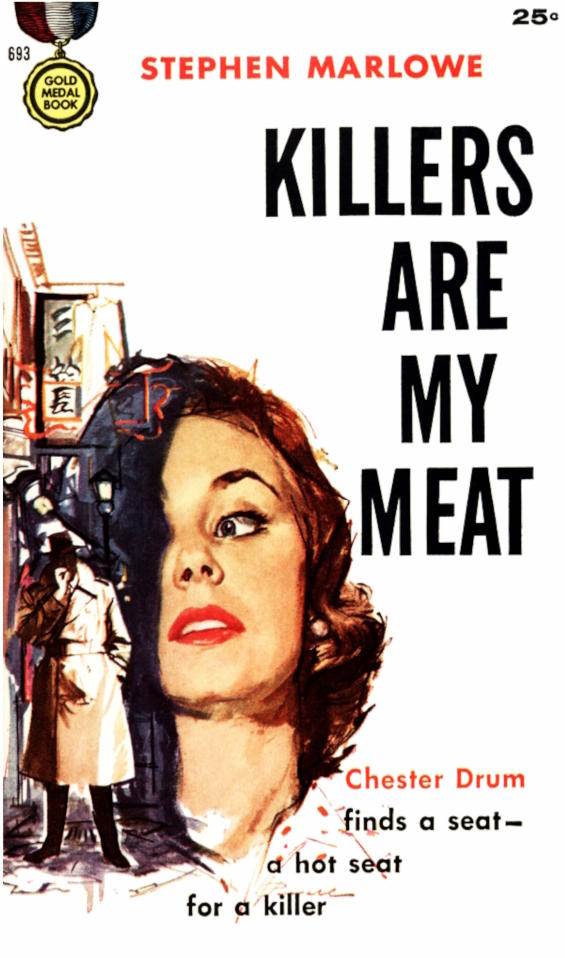
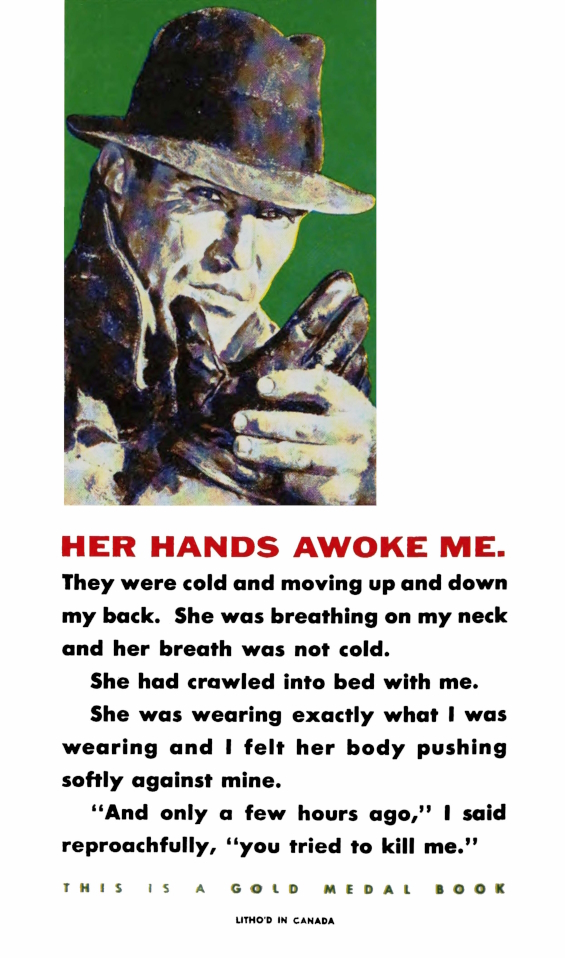
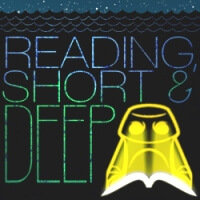 Reading, Short And Deep #337
Reading, Short And Deep #337

